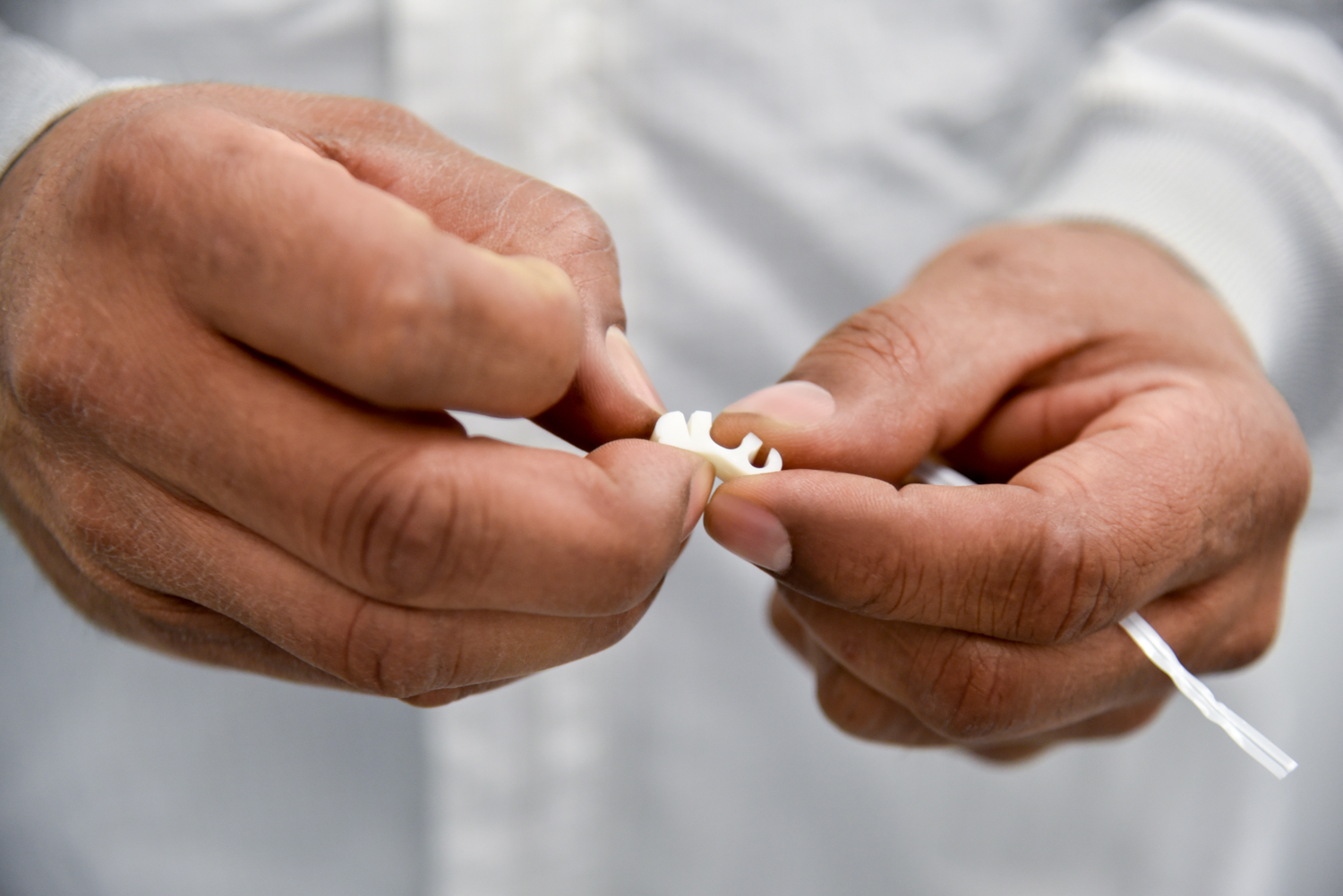What do the leading medical devices on the market all share in common? Advanced materials that are developed specifically to address form, fit, and function.
Materials play a critical role throughout the lifecycle of a medical device—from product design and testing to production, regulatory compliance, and its real-world use. The right choice of materials ultimately drives product success. Yet the wrong choices may lead to manufacturing delays, product recalls, field failures, or worse.
That’s why medical device manufacturers should work closely with an expert in materials science and processing before developing and launching a new product. Here are four ways they can help:
1. Choosing the Most Suitable Materials
Whether you’re developing an insulin patch, orthopedic packaging, or a device that delivers negative pressure wound therapy—materials matter. After all, the best product design is only a sketch until you find the appropriate materials to make it.
An expert in specific materials can ensure your medical device focuses on:
- Form: Materials that integrate with the product design and bring your device to life
- Fit: Materials that have the structure and characteristics your product needs to perform
- Function: Materials that meet the intended use and purpose of the device for your patient population
Form, fit, and function are especially important during medical device validation. A materials science team can help streamline that process and guide you to materials that support your product’s intended use and indications for use—the disease or condition your device will diagnose, treat, prevent, cure, or mitigate1.
2. Addressing Safety Concerns
For medical device manufacturers, patient safety is always a top concern. The correct materials play a key part in ensuring your product passes critical safety screenings and stays in compliance with strict safety standards.
For example, a typical patient preoperative skin preparation device uses a highly specialized medical foam to release and disperse antiseptic on the skin. This foam must meet a specific PPI (pores per inch) and density to regulate the flow of the antiseptic. Additionally, to ensure safety and sterility, the foam must be FDA approved, meet USP Class VI standards for use with medical applications, and be compatible with various sterilization methods.
3. Understanding Manufacturing Needs
When it comes to the materials used in your medical device, the manufacturing process you select is critical. Simply put, many materials don’t bond well with one another. By pairing the right materials together, you can avoid costly yield loss in production.
It’s also important to keep patient safety in mind as many medical device solutions must be manufactured in cleanrooms and controlled environments to ensure sterility and low bioburden levels.
Materials impact the function, durability, and performance of a product as well, and an experienced materials science partner can provide the right advice at the right time. For example, when developing a medical device that needs to hold air, there are many factors to consider when choosing the appropriate film. These can include time to inflate/hold/deflate, maximum pressure, temperature extremes, ability to be sterilized, and compatible with joining methods to provide a failsafe seal.
4. Supporting the Entire Product Development Process
As with any business relationship, the earlier you start working together, the better. Early-stage collaboration between your team and expert materials science partners can reduce risk, slash production costs, and speed up product launch.
Your partner should build a cross-functional team that includes a process engineer responsible for process development, a quality engineer to ensure that processes meet your tolerances and capabilities, and a supply chain lead who manages the procurement of the necessary materials and logistics.
As an expert in materials science and processing, UFP MedTech can help your company with the four points above. In addition, we have laboratories to support all of our core process capabilities, including product designers who can quickly create working prototypes to accelerate time to market and online project management tools that enable complete transparency and accountability. All led by a dedicated project manager who will keep your project on schedule and on budget.
Find out how UFP MedTech can help turn innovative materials into an impactful medical device. Contact our team today>
References:
1 https://www.fda.gov/medical-devices/classify-your-medical-device/how-determine-if-your-product-medical-device#considerations


